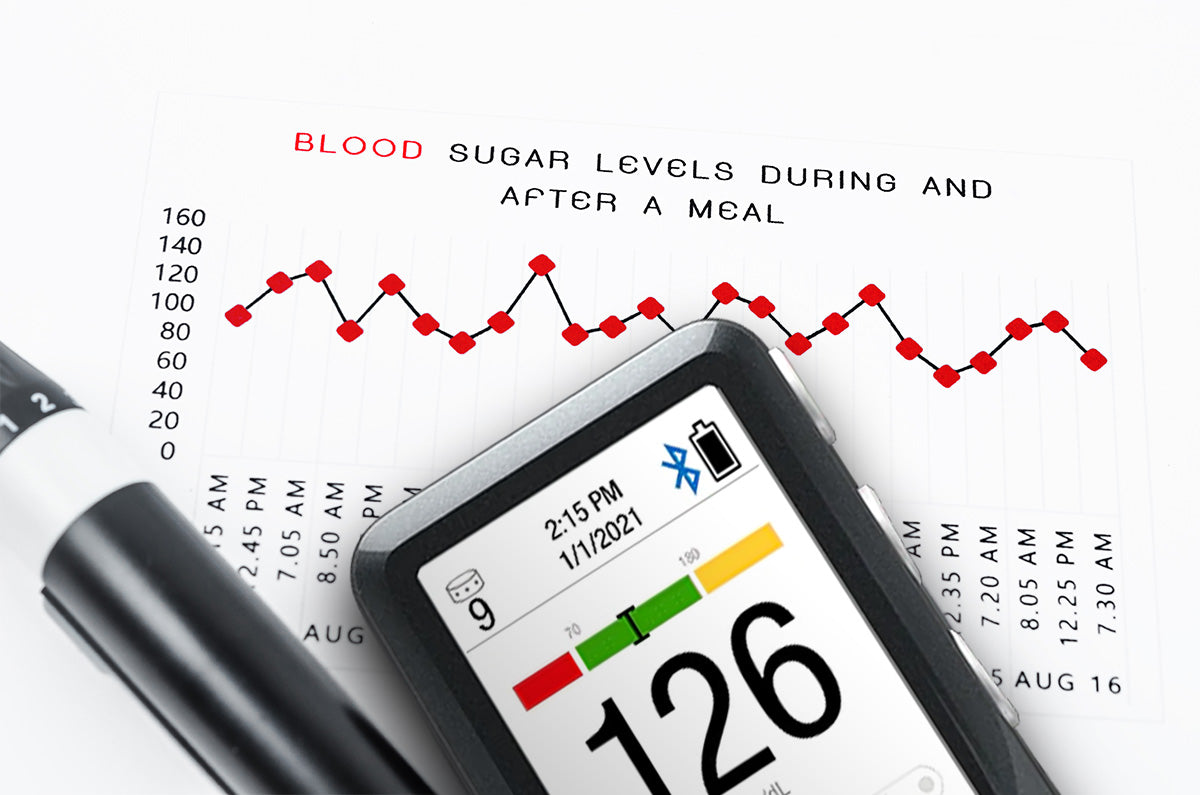Managing type 2 diabetes can feel overwhelming. However, knowing what questions to ask your doctor can help you gain clarity and change your perspective. This blog will provide you with a comprehensive list of questions to ask your healthcare team.
These questions can help start important conversations with your healthcare provider, putting you on the right track to proper diabetes management.
Diet and Nutrition
When considering type 2 diabetes questions to ask your healthcare team, the topic of diet and nutrition should be at the top of the list. This is because maintaining a healthy diet will play a vital role in type 2 diabetes management. In fact, many people with type 2 diabetes can manage their glucose levels through diet and exercise alone.
Consider asking your healthcare team the following questions to help support a healthy eating plan:
- How can I create a balanced meal plan to help me manage my blood sugar levels?
- What are some foods that can help me control my diabetes?
- Is there a recommended portion size and carbohydrate intake?
- Is there anything I should limit or avoid in order to better manage my condition?
- Should I consult a dietitian to fine-tune my meal plan?
Blood Glucose Monitoring
Regular blood glucose monitoring is most beneficial for people with type 2 diabetes who are on glucose-lowering medications. However, research suggests that monitoring may also be necessary for individuals with type 2 diabetes who are not on insulin.
Because blood glucose monitoring plays an important role in proper diabetes management and maintaining health, consider asking your healthcare team the following questions:
- How often and at what times of day should I check my blood sugar?
- What is my ideal blood sugar range, and how do I know if I'm on track?
- What should I do if my blood sugar levels are consistently high?
- How should I handle low blood sugar episodes?
- Can you advise me on the best blood glucose monitoring methods?
Exercise Questions
Regular physical activity can be a game-changer in getting the best results from your health management plan. So, discussing your current and future exercise plan with your physician is important.
These questions will help you safely add exercise into your daily/weekly routine:
- How frequently should I work out, and how long should each session last?
- Which forms of exercise are best for controlling type 2 diabetes?
- In relation to my meals, when is the ideal time to exercise?
- How can I prevent exercise from causing blood sugar fluctuations?
- Should I consult with a fitness instructor before getting started?
Routine Health Check & Complications
When deciding on type 2 diabetes questions to ask your healthcare team, remember that regular health checks will be essential in helping you stay on top of the condition. Further, knowing the potential complications associated with a new type 2 diabetes diagnosis can help lay the groundwork for safer, healthier outcomes.
These questions will help you get the conversation started:
- How frequently should I have HbA1c tests to check my average blood glucose levels?
- What is a lipid panel, and how frequently should I have this test?
- What are the cholesterol and triglyceride target ranges I should aim for? And how do I manage those levels?
- How often should I check my blood pressure, and what are normal levels?
- Are there any other routine tests or screenings I should know about?
- How can I keep my feet healthy and avoid complications?
- What should I do to maintain good eye health?
- Should I be doing anything to improve my oral health?
- How can I promote heart health and reduce my risk of cardiovascular disease?
- What are the warning signs of a potential problem, and when should I seek medical attention?
Complication |
Key Areas to Address |
| Foot Health | Discuss foot care practices to prevent complications. |
| Eye Health | Inquire about regular eye exams and eye care routines. |
| Oral Health | Learn about maintaining oral health and dental check-ups. |
| Heart Health | Understand the significance of heart health and its management. |
| Warning Signs | Identify signs of complications and when to seek assistance. |
POGO Automatic®: Type 2 Diabetes Questions to Ask Your Doctor
Knowledge is power. Arming yourself with knowledge and discussing your concerns with your healthcare team on a regular basis is a powerful and effective way to manage diabetes. When discussing your questions with your healthcare team, keep in mind that you're taking proactive steps toward a healthier lifestyle and future. Your healthcare team is there to help you every step of the way.
Ask your healthcare team about using the POGO Automatic. The POGO Automatic Monitor offers a simple, quick, and accurate way to check your blood glucose. POGO Automatic provides an all-in-one way to check your glucose levels on the go, and discreetly.
The monitor syncs with the Patterns® for POGO Automatic app via Bluetooth, giving you real-time access to your results, trends, and lifestyle correlations. Set reminders, receive alerts for emergencies, and share insights with your healthcare team.
Discreet, on-the-go, all-in-one glucose testing.
POGO Automatic is the only FDA-cleared blood glucose monitor that lances and collects blood automatically, in one simple step, with its 10-test cartridge technology, eliminating the need to carry separate lancets and test strips. Reach out today to learn more about how you can check your blood without interrupting your day.
 |
Robert MillerRobert Miller is a customer experience specialist committed to helping people navigate the world of diabetes. He focuses on finding innovative tools and strategies that make diabetes management easier to support long-term wellness. |
All content on this website is for educational purposes only and does not replace the guidance of your healthcare practitioner. Always seek the advice of your physician or other qualified healthcare provider with any questions you may have regarding a medical condition or treatment and before undertaking a new healthcare regimen, and never disregard professional medical advice or delay in seeking it because of something you have read on this website.
PL000399 Rev A




